


Additional Protections For Motion Pictures According To U.S. Copyright Office
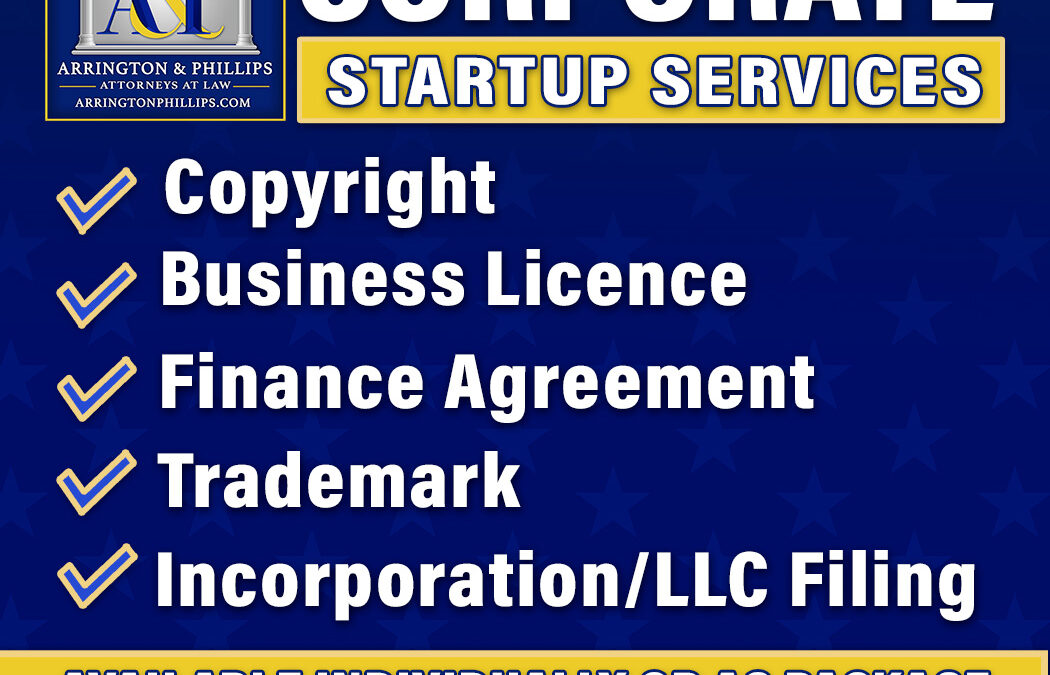
Atlanta Business Attorneys Who Specialize In Startups!
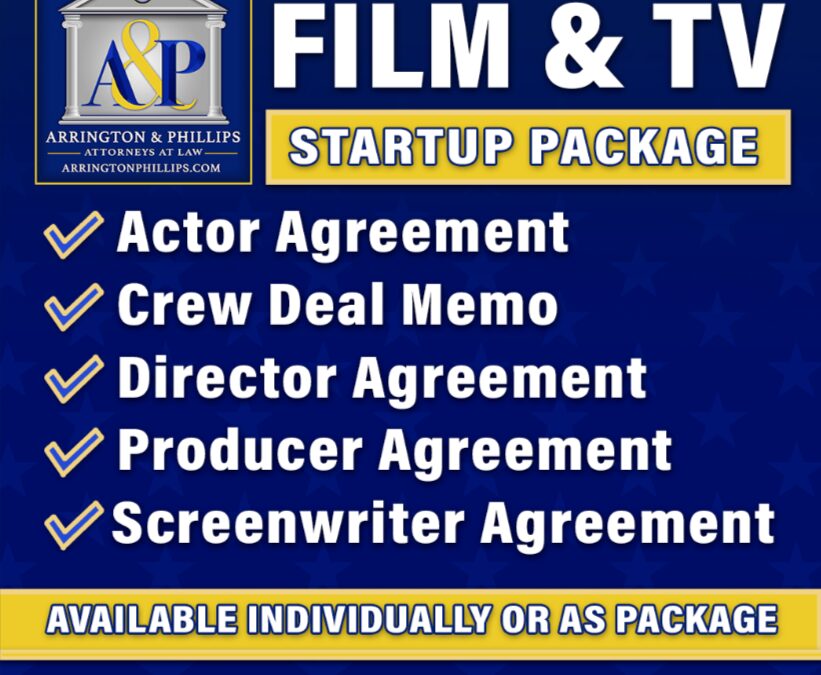
Get Bundled Legal Protection For All Your Creative Endeavors!

What’s In A Producer Agreement And Why Is It Important?
What Is A Producer Agreement?
What’s Included In A Producer Agreement?
-
Scope of services: What services will the producer provide? What exactly is included and what is excluded?
-
Liability protections: Who is responsible if things go wrong?
-
Intellectual property ownership: Who owns the intellectual property in the final deliverable? And who owns all the IP used before and after the project?
-
Payment and late payment: How much will the producer get paid? How will they get paid (e.g. is it a one off payment or is it in royalties?)? And what happens if the client doesn’t pay or pays late?
-
Confidentiality: Is there anything that needs to be kept confidential between the parties?
-
Term and termination: How long does the contract go for? How do you get out of it?
Producer Agreement Example
Need Help With A Producer Agreement?

Additional Areas Of Music Law
While music law focuses primarily on copyright law and licensing, music law also involves other areas of law in the music business. Other types of law that are part of music law include:
Contract law
Immigration and visa requirements
Safety and health
Taxes
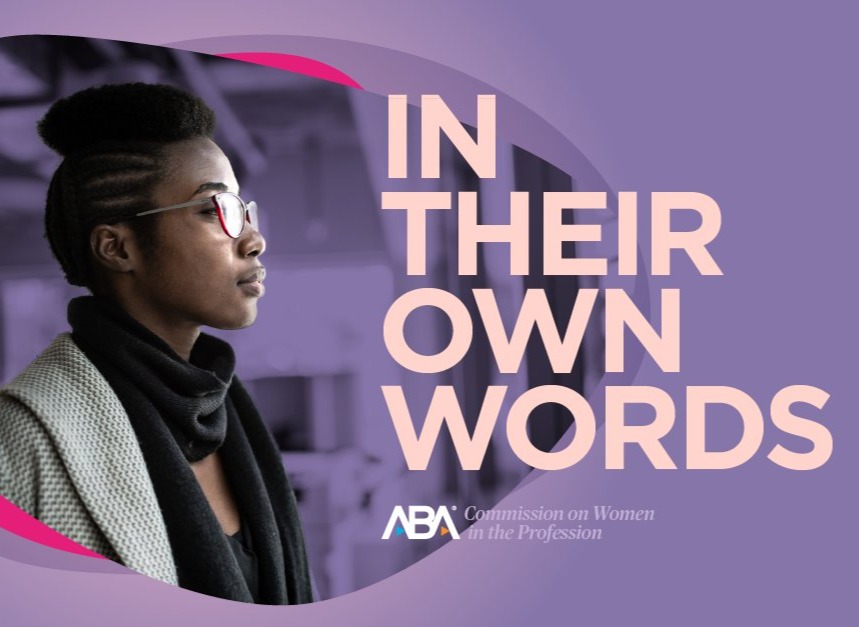
What Is Causing Women Of Color To Leave The Legal Profession?
Experienced Women Explain Why They Are Leaving Their Firms and the Profession
The answer lies in a lack of credit for their efforts…
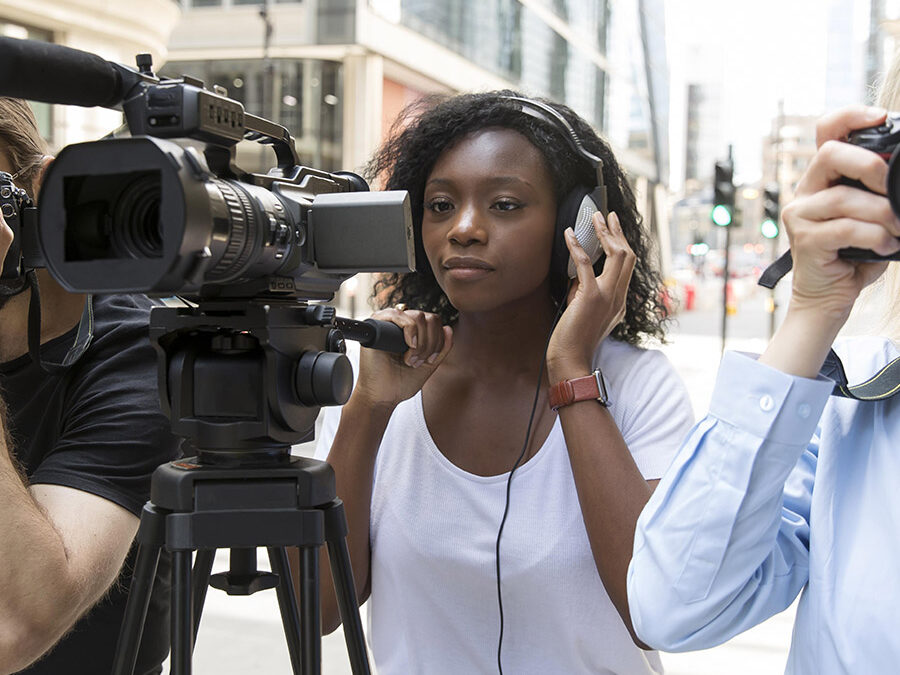
How Music Law Applies To Broadcasting
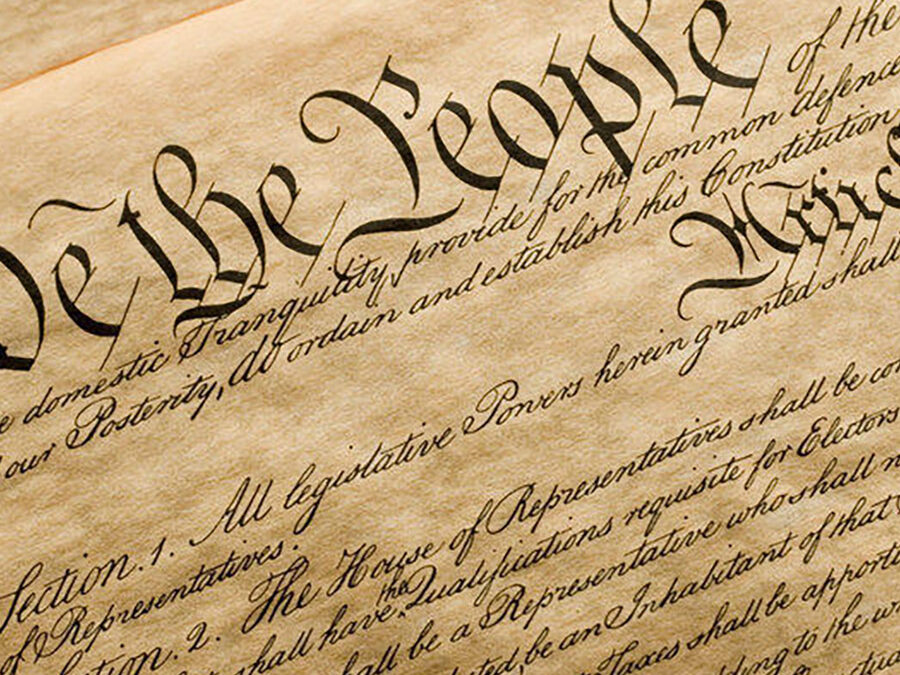
Federal Laws That Regulate HOA Communities
Written by Denise
It is no secret that federal laws regulate HOA communities in more ways than one. Therefore, board members and HOA managers should make sure to familiarize themselves with these laws to avoid potential liability.
What Are the Federal Laws That Regulate HOA Communities?
Homeowners associations operate in much the same way as non-profit corporations. In fact, in many states, homeowners associations even have to register as such with the Secretary of State. And, as with other corporations, HOAs must abide by certain federal laws that apply to them. Familiarity with these laws is essential in helping keep the community and its board members out of legal trouble.
Below, you will find the different federal laws regulating homeowners associations.
Fair Housing Act
The Fair Housing Act (FHA) is a federal law that regulates housing providers, prohibiting them from discriminating against people based on their race, color, national origin, sex, and familial status. The Act was subsequently amended to include disability as a protected class, which means housing providers can’t discriminate against anyone based on their mental or physical disability as well.
It is important to remember that the FHA regulates both public and private housing providers. Therefore, it also applies to homeowners associations. Under the Act, it is illegal for an HOA to take any adverse action that would impact a person’s right to buy, rent, or enjoy the use of a property on the basis of that person belonging to a protected class.
For instance, a homeowners association can’t deny residence to a couple in the community because they are unmarried. This directly violates the FHA in terms of discrimination based on familial status. Even if the rule is not facially discriminating, if it affects a protected class disproportionately or subtly, it is a violation of the FHA.
It is worth noting that several states have enacted their own fair housing laws designed to supplement the FHA. For example, in addition to the protected class under the FHA, California has added multiple others . These include ancestry, citizenship, sexual orientation, gender identity, military status, and source of income.
Americans With Disabilities Act
The Americans With Disabilities Act of 1990 (ADA) prohibits discrimination against individuals with disabilities. It more directly applies to public spaces and facilities, thus affecting homeowners associations with common areas and elements that the general public uses or enjoys. The Act does not apply, however, to common spaces that are exclusively open to members and their guests.
For HOA communities, public accommodation refers to any space the HOA opens to the general public. This includes any spaces the HOA rents out or allows schools and church groups to use. If the HOA sells public membership passes to some of the HOA’s amenities, they also fall under the public accommodation classification. These spaces are governed by the ADA.
Fair Debt Collection Practices Act
The Fair Debt Collection Practices Act (FDCPA) governs the practices and behavior of debt collectors. Debt collectors are third parties who regularly attempt to collect the debts owed by consumers. Given this description, homeowners associations do not generally fall under this classification. The federal Act prohibits any unfair, deceptive, and abusive collection practices. It also lays out certain requirements that debt collectors must follow when attempting to collect a debt.
Even if homeowners associations are not considered debt collectors in the eyes of the Act, it is still important to be familiar with the FDCPA, especially for HOAs that hire collection agencies . Though, keep in mind that HOAs that use a different name to collect a debt may be recognized as debt collectors. Additionally, several states have also enacted their own fair debt collection laws.
The Servicemembers Civil Relief Act
The Servicemembers Civil Relief Act (SCRA) is a federal law that provides financial and legal protection to members of the United States Army, Air Force, Navy, Marine Corps, and Coast Guard from collection actions and foreclosures. This Act applies to homeowners associations as well.
As one of the federal laws that regulate HOA communities, the SCRA applies to the following service members:
-Those on active duty
-Activated reservists
-Members of the National Guard mobilized for more than 30 consecutive days
-Commissioned officers of the Public Health Service or the National Oceanic and Atmospheric Administration who are on active duty
The FDCPA regulates debt collectors, so homeowners associations don’t generally fall under it. But, the SCRA regulates all creditors, including homeowners associations.
Freedom to Display the American Flag Act
The Freedom to Display the American Flag Act of 2005 specifically addresses homeowners associations. This Act protects the right of homeowners to fly the U.S. flag, provided it is flown in a manner consistent with the U.S. Code.
Under federal law, homeowners associations can’t prohibit homeowners from displaying the American flag on their residential property. However, the Act does give HOAs the ability to place reasonable restrictions on the time, place, and manner of display.
Certain states may also have additional laws that support the Freedom to Display the American Flag Act. For instance, Florida law dictates that homeowners can display flags on flagpoles measuring 20 feet or less, and HOAs can’t go against this.
Over-the-Air Reception Devices Rule
The Over-the-Air Reception Devices Rule (OTARD) is a federal law that prohibits homeowners associations from enforcing restrictions that hinder the installation, use, and maintenance of satellites or antennas to gain access to video programming. Under this law, unenforceable restrictions include those that:
Unreasonably prevent or set back the installation, use, or maintenance of antennas;
Unreasonably raise the cost of installation, use, or maintenance of antennas; or,
Prevent the antennas from gaining acceptable reception or quality signal.
The United States Bankruptcy Code
The United States Bankruptcy Code is the final federal law on this list that affects homeowners associations. According to this law, HOAs can’t take any collection actions if a homeowner has filed for bankruptcy and the case is still pending. It also applies if the court has yet to issue an order lifting the automatic stay. If an HOA violates this rule, it can face consequences, which can include releasing a lien or monetary penalties.
The Final Word
Clearly, there are a handful of federal laws that regulate HOA communities. Violating any or all of them carries a hefty penalty, be it monetary or legal in nature. Thus, every HOA board member and manager should make it a point to educate themselves on these laws.
Of course, it is not always easy to juggle federal, state, and local laws with HOA management. If you need help, Clark Simson Miller is the best way to go. Call us today at 865.315.7505 or contact us online to learn more about our services.
Shared from Clark Simmon Miller

Appropriation Art vs. Copyright Law: A Recent Setback for the Promotion of the Arts
Written by Peter Fay, JD ’23
The Second and Ninth Circuits have consistently led the way in establishing the scope of American copyright law. In the past few years, the Second Circuit in particular has had the difficult task of reconciling copyright law with appropriation art, an artistic style predicated on the intentional use of preexisting images and objects . The user alters the original works to create a new aesthetic experience and/or meaning.
While a popular and respected form of art , appropriation art’s essence – the purposeful use of preexisting works – makes it especially susceptible to claims of copyright infringement. Outside of consent from the original work’s author, the best legal defense for appropriation art is the doctrine of fair use. However, as appropriation artists have experimented with increasingly minimalistic changes to the works they appropriate, this doctrine has proven to be an unreliable shield. Appropriation artists looking to explore the substantial effects that subtle alterations can have on art find themselves at odds with the fair use doctrine’s mandate that unauthorized use of preexisting works be “transformative.” Finding the proper overlap between minimalistic alterations and transformativeness is difficult, but it is a codification that has considerable implications for future appropriation art. Unfortunately, the most recent Second Circuit decision on the matter suggests this overlap is small to nonexistent, impeding the promotion of appropriation art.
Andy Warhol Found. for the Visual Arts, Inc. v. Goldsmith, No. 19-2420-cv, 2021 U.S. App. LEXIS 25277 (2d Cir. Mar. 26, 2021) resulted from a dispute over a series of silkscreen prints made by Andy Warhol. The prints were based on a photograph taken and copyright protected by Lynn Goldsmith in 1981 of the famous musician Prince. While Goldsmith had licensed the Prince photograph to be used by Andy Warhol for a piece commissioned by Vanity Fair in 1984, the license ended there. Warhol, however, continued to make fifteen additional works based on Goldsmith’s photograph. These additional pieces would only come to Goldsmith’s attention after Prince’s death in 2016. As the successor to the rights of the Prince Series, the Andy Warhol Foundation moved for a declaratory judgment while Goldsmith sued for copyright infringement.
The district court concluded that the Prince Series was transformative and thus fair use, going through the 1976 Copyright Act’s four-step test but relying primarily on the purported change of purpose in the piece: the aesthetic change from a black and white photograph to a colorful silkscreen print transformed Prince from a self-conscious musician to a proud world-renowned rockstar.
The Second Circuit disagreed, arguing that the district court had forgone the proper objective assessment of purpose and character for a ”subjective evaluation of the underlying artist message.” Underlying the circuit court’s ruling is a concern that an evaluative standard would weaken copyright protection by allowing appropriators of preexisting works to throw out any feasible change in purpose as a fair use justification. The circuit court also stated that judges are ill-suited to engage in artistic evaluation. Ultimately the Second Circuit concluded that a proper transformation under fair use occurs when the secondary work displays more than the user’s artistic style imposed on the original author’s work.
While I understand the Second Circuit’s desire for a more consistent transformativeness standard, I am skeptical this ruling will create the clarity the court seeks. Art is an innately subjective form of human expression; the experience and reaction of one spectator to a given artwork will regularly be different from that of another spectator. The Second Circuit even admits as much, dismissing that the purpose of work can be pinpointed based on the intent of the author or the opinion of a critic. So why are we kidding ourselves that there is one objective assessment of art? Labeling an inquiry into something as subjective as the purpose and character of art does not suddenly ensure the inquiry is objective.
The Second Circuit would have better served both doctrinal clarity and the promotion of the arts by leaving in place the transformativeness standard it expressed in its last major appropriation art case, Cariou v. Prince , 714 F.3d 694 (2d Cir. 2013). In that case, the Second Circuit asserted that the critical question of transformativeness is how the work “may reasonably be perceived.” This reasonable observer standard is subjective but restrained: it affords the understanding that there are multiple reasonable interpretations of art while also excluding abuse of fair use with fringe explanations. Had the Second Circuit stuck with this standard, Andy Warhol’s Prince Series and its palpable celebration of Prince as a larger-than-life figure would have been protected under fair use.
The good news for appropriation artists is that the Andy Warhol Foundation case has been appealed to the Supreme Court , with the Warhol Foundation arguing that the Second Circuit’s judgment disregarded the Court’s decision in Google LLC v. Oracle Am. , Inc. , 141 S. Ct. 1183 (2021). For now, however, appropriation artists will likely need to think twice about the magnitude of alterations they are making to original works.
Shared from JIPEL
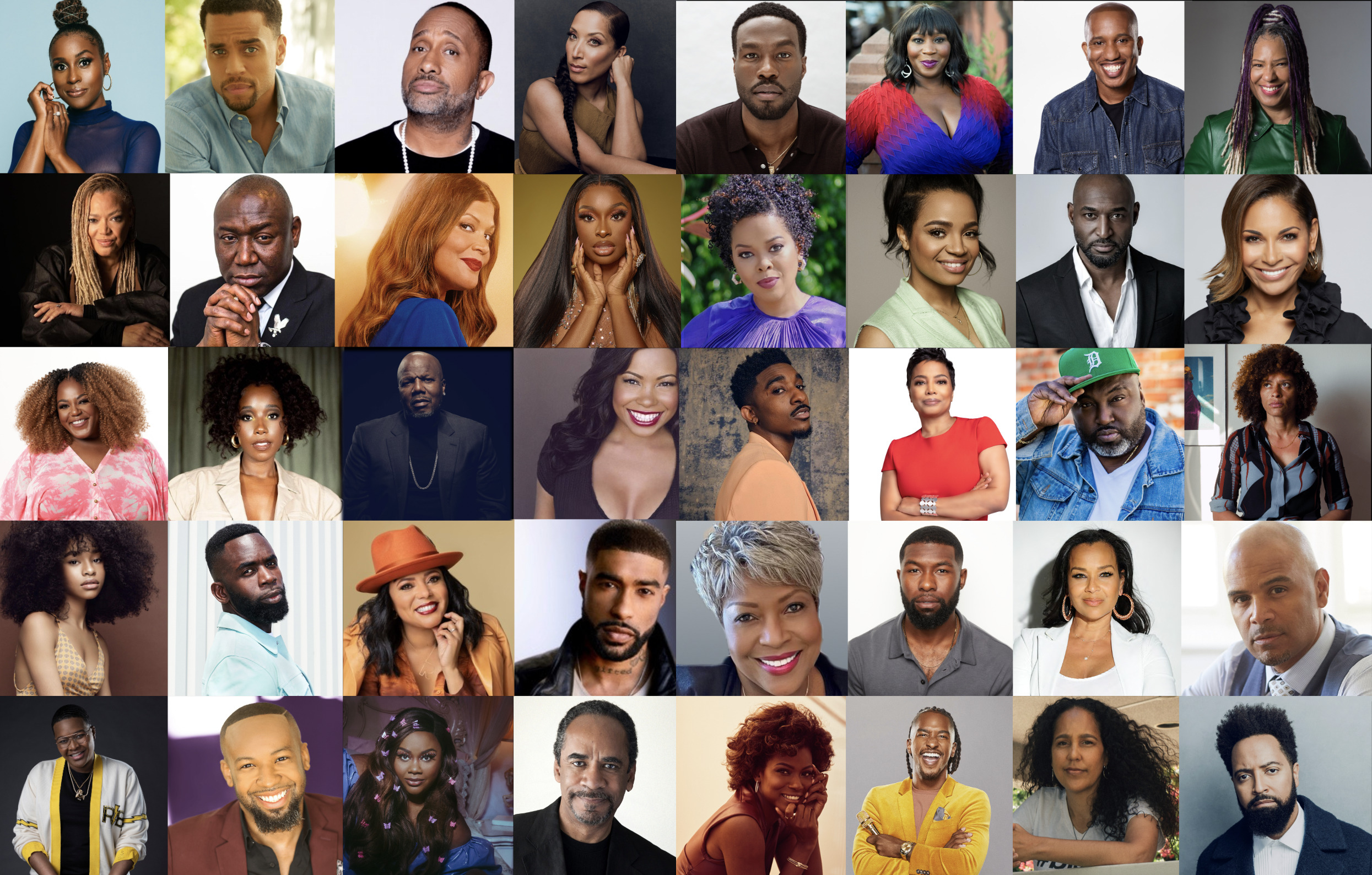
American Black Film Festival Announces 2022 Top Line Talent!
Issa Rae, Chanté Adams, Yahya Abdul- Mateen II, Kenya Barris, Gina Prince-Bythewood, Ben Crump, Michael Ealy, DeVon Franklin, Kasi Lemmons, Judge Greg Mathis, LisaRaye McCoy, Kyla Pratt, Trevante Rhodes, Kendrick Sampson, Robin Thede, Judge Lynn Toler, Susan Kelechi Watson, Salli Richardson Whitfield And More Topline Programming Slate For 2022 American Black Film Festival.
The Five-Day Fest Returns to Miami June 15-19, Followed by a Virtual Segment, June 20-30 Featuring a Mix of Conversations, Casting Calls, Networking Events and Live Streamed Content.
The first hybrid edition of the American Black Film Festival (ABFF), now in its 26th year, will feature a robust slate of speakers including Kenya Barris, Yahya Abdul-Mateen II, Trevante Rhodes, Salli Richardson-Whitfield, Kyla Pratt, Judge Greg Mathis, Naturi Naughton, DeVon Franklin and 2022 Festival Ambassador Issa Rae who will provide opening night welcome remarks and close out the festival with new series Rap Sh!t, as well as panels ranging from the business of Hollywood to spotlights on new films and television series. Regarded as one of the “nation’s largest community of Black film and television enthusiasts,” the festival will be held live June 15-19 and continue virtually June 20–30 on its custom-designed online platform ABFF PLAY https://abffplay.com/ .
“We are thrilled to have the support of the industry with so much content targeted towards Black audiences. For 26 years, we have provided a platform for Black creatives to deliver provocative conversations and compelling entertainment to our community. This year’s ABFF will be no different with our live and virtual programming,” said Nicole Friday, President and General Manager, ABFF Ventures LLC.
Highlights include, The Leading Man panel sponsored by Cadillac will bring some of today’s most sought-after actors Michael Ealy (Fatale) , Yahya Abdul-Mateen II (Candyman ) and Trevante Rhodes (Moonlight) to the stage for a revealing discussion about their roles in Hollywood and how they have become leading men, moderated by Malinda Williams (The Wood); a conversation with trailblazing filmmakers Gina Prince-Bythewood (The Woman King ), Kasi Lemmons (I Wanna Dance With Somebody) and Nicole Brown (President of TriStar Pictures) in Fierce Female Filmmakers of TriStar Pictures sit down to talk about their upcoming releases and a sneak peak of the films; Prime Video will present an intimate discussion on how Black women are leading the charge in creating content for all audiences to love in Leading from Within.
The hit Peacock Original series Bel-Air : will showcase Clips and Conversations with the Co-Showrunner/Executive Producer Rasheed Newson and cast Adrian Holmes, Cassandra Freeman , Coco Jones , Akira Akbar , Jimmy Akingbola , and Jordan L. Jones ; NBCUniversal will present Bust Down in Laughter with NBCU’s Comedy Crew with Sam Jay , Langston Kerman, Jak Knight and Chris Redd from Peacock’s “Bust Down” and Nicole Byer , Phil Augusta Jackson and Carl Tart from NBC’s “Grand Crew;” and in celebration of the final season of This Is Us , actress/writer Susan Kelechi Watson, writer/producer Eboni Freeman, and producer Christiana Hooks will give the audience a behind the scenes look at the episode, “Our Little Island Girl: Part Two.” During the Black Experience on Xfinity panel, series creator Andrea Lewis , Beauty Expert Kahlana Barfield Brown, natural hair entrepreneur Whitney White (aka@Naptural85) and producer CJ Faison will highlight Black women and their overall effect on the beauty industry in the upcoming docuseries The Black Beauty Effect; renowned filmmaker Ayoka Chenzira honors a beloved independent film advocate in A Champion of Independent Black Film: Celebrating the Legacy of Michelle Materre; a peak into Bounce’s Original series, Johnson and Finding Happy , with Clips and Conversation panels featuring the cast and producers; so you want to be a showrunner?; learn how from Robin Thede (Black Lady Sketch Show), Rikki Hughes (Dave Chappelle Sticks & Stones) and Randy Huggins (BMF ) in Life of a Showrunner delivered by UPS.
Prudential Financial brings their Cocktails, Conversations and Financial Facts with LisaRaye McCoy. Disney+ and NatGeo’s Drs. Ferguson and Hodges of hit series, Critters Fixers will offer the best tips to care for your pets during their Clips and Conversation . The Motion Picture Association (MPA) will discuss a finance plan for filmmakers’ creative content in Funding Your Story: The Nuts & Bolts of Film Finance; and the Academy of Motion Picture Arts and Sciences’ leadership will discuss the Academy’s outreach outside of Oscar Sunday.
Not-to-be-missed events include, the 25th HBO Short Film Award Showcase hosted by Bevy Smith featuring five short films from emerging filmmakers who compete for the prestigious award; the ABFF Comedy Wings showcase hosted by Aida Rodriquez , and; The “Best of the ABFF Awards” where the 2022 independent film awards and talent contest winners will be presented.
ABFF’s talent discovery programs find emerging talent and introduce them to the entertainment industry. Included on this year’s lineup is the return of ALLBLK’s Shoot Your Shot Casting Call featuring the honorable Judge Lynn Toler (Commit or Quit ) and the Warner Bros. Discovery Writers Competition . The live festival culminates with its annual ABFF Greater Miami Community Day in partnership with the Greater Miami Convention and Visitor’s Bureau as part of its commitment to inform, educate and provide opportunities to the local community about the entertainment industry. Community Day is free to South Florida residents.
Previously announced, the festival will open with the Netflix documentary CIVIL , an intimate verité look at the life of maverick civil rights attorney Ben Crump directed and produced by award-winning filmmaker Nadia Hallgren and produced by Kenya Barris , Roger Ross Williams and Lauren Cioffi .
All live events are held in and around South Beach including The Regal South Beach, the New World Center Performance Hall, the Bass Museum and the Black Archives Historic Lyric Theatre.
As part of its virtual talk series events, the lineup includes Life as Entrepreneurs about what it takes to build a family brand with Gia Casey and DJ Envy presented by Morgan Stanley, and; an intimate conversation with the cast of the new docuseries on E!, Mathis Family Matters featuring Judge Greg Mathis. Universal’s Global Talent Development & Inclusion (GTDI) department will celebrate its five-year anniversary with Universal GTDI’s Five Years of Creative Impact . Lionsgate and Starz bring their Black executives for a Gate-Opening: Black Exec Round Table.
As previously announced the full feature, documentary and web series and spotlight screenings lineup is available here https://www.abff.com/miami/2022-screenings/narrative-features/ . All virtual events are available on ABFF PLAY.
Following is the schedule of 2022 ABFF talk series events to date. For times, locations, and the latest information visit, www.ABFF.com
Live Events
Thursday, June 16, 2022
The NFT Masterclass for Creative
NFTs have risen as one of the hottest topics in the entertainment industry. Understanding the intellectual property issues in NFTs is essential to our protection and advancement. This session will address the ABCs of NFTs, including copyright, trademark, publicity issues, and tax matters surrounding NFTs. Instructed by Kimra Major-Morris, Attorney at Law.
Leading From Within
Presented by Prime Video
From the suffrage movement to the civil rights movement, history has shown us we all win when Black women lead. Join three Black women executives from Prime Video for an intimate discussion on how they are leading the charge to create content across series and features that all audiences will love.
Moderators: Latasha Gillespie (Head of DEI, Prime Video)
Panelists: Amber Rasberry (Sr. Executive Development, Movies – Amazon Studios), Lauren Anderson (Co-Head Content & Programming, Amazon Freevee) and Larissa Bell (Development Executive, Amazon St)
The Black Beauty Effect Panel
Presented by Black Experience on Xfinity
An intimate discussion on the global impact of Black Beauty in the upcoming docuseries, The Black Beauty Effect. This discussion will highlight black women and their overall impact in the beauty industry, despite its historical exclusion and oppression of black women.
Panelists: Andrea Lewis, Series Creator, Kahlana Barfield Brown, Beauty Expert, Whitney White, Natural Hair entrepreneur, CJ Faison, Executive Producer
Funding Your Story: The Nuts & Bolts of Film Finance
Presented by the Motion Picture Association
You can be a great storyteller and writer of words that captivate the masses. However, you can’t share that story with the world without having a financing plan in place to get the story made! In this panel, representatives from major studios and a lead film finance company will provide an overview of the variety of ways content creators can finance their production. As each panelist has a unique background in the film finance world, this panel will provide filmmakers with a basic understanding of what to expect when putting together a financing package.
Moderator: John Gibson, Vice President, External and Multicultural Affairs, Motion Picture Association
Panelists: Donyelle Marshall, LATAM Business & Tax Analyst, Florida Office of Film & Entertainment; Chiquita Banks, Esq., Sr. Vice President, TPC; Graham Lee, Esq., Vice President, Tax Counsel-Production, Paramount; Brian O’Leary, Esq., Sr. Vice President- Tax, NBCUniversal (Invited)
Bel-Air: Clips & Conversations
Presented by Comcast NBCUniversal
Peacock presents an intimate conversation with the cast members from BEL-AIR about celebrating Black on-screen characters and discussing story themes such as love, family, and relationships.
Moderator: Scott Evans
Panelists: Rasheed Newson, Adrian Holmes, Cassandra Freeman, Coco Jones, Akira Akbar, Jimmy Akingbola and Jordan Jones
Bust Down in Laughter with NBCU’s Comedy Crew
Presented by Comcast NBCUniversal
Join talent from NBCU’s hit comedies for a lively conversation about celebrating and shaping Black culture through stories of family, friendships, love and joy on TV.
Moderator: Danielle Young, Journalist and Host of Real Quick
Panelists: Nicole Byer, Phil Augusta Jackson and Carl Tart from NBCU’s “Grand Crew” and Sam, Jay, Langston Kerman, Jak Knight and Chris Red from Peacock’s “Bust Down”
Shoot Your Shot
Presented by ALLBLK
ALLBLK, the first and largest streaming service for Black TV and film from AMC Networks, is partnering with the American Black Film Festival (ABFF) to kick off a nationwide casting call for the co-star of its latest original production, “Judge Me Not.” A new hour-long psychological/legal drama created by TV icon, Judge Lynn Toler. “Judge Me Not” focuses on a millennial Black female attorney navigating mental health issues, a rocky romantic relationship and a volatile family, who shocks everyone when she wins a judicial seat at 31. Once there, she fights her demons while managing the chaos of a busy court.
25th Annual HBO Short Film Award Showcase
Presented by Warner Bros. Discovery and HBO
Five finalists will compete in ABFF’s HBO Ò Short Film Award . The prestigious showcase will celebrate 25 years of HBO’s commitment to recognizing the next generation of diverse, artistic and creative talent at ABFF. This year’s groudbreaking directors with diverse style of filmmaking are: Sherif Alabede (Another Country ), Elisee Junior St Preux (Aurinko in Adagio ), Gia-Rayne Harris (Pens & Pencils ), Destiny J. Macon (Talk Black ) and Rebecca Usoro (The Family Meeting )
Friday, June 17, 2022
Masterclass: Legal Aspects of Indie Filmmaking
Presented by Arrington & Phillips
This seminar will introduce filmmakers to the legal and business aspects of independent filmmaking. From conception to distribution, attendees will learn all the basics needed to make, produce and distribute their own independent film. Instructed by Marvin Arrington and Vince Phillips.
Johnson : Clips & Conversations
Presented by Bounce TV
Join the cast and producer of Johnson for a conversation around the anticipated return of season 2. Johnson focuses on life-long best friends and their sometimes-complicated journey of love, friendship, heartbreak, and personal growth as told from the Black male perspective. The show is executive produced by Eric C. Rhone and Cedric The Entertainer’s A Bird & A Bear Entertainment.
Moderator: David J. Hudson, Head of Original Programming for Scripps Networks
Panelists: Deji LaRay (series creator & show runner); Thomas Q. Jones (show runner, “P- Valley,” “Luke Cage”); Philip Smithey (“Switched at Birth,” “The Rookie”); and Derrex Brady (“NCIS,” “First”) with Earthquake (“The Neighborhood,” “Chappelle’s Home Team – Earthquake: Legendary”) and Eric C. Rhone (executive producer)
Finding Happy: Clips & Conversations
Presented by Bounce TV
Meet the cast of Bounce’s newest series, Finding Happy , a show created about, for and by Black women. The dramedy follows Yaz Carter as she navigates her loving-but-complicated family, her stagnant career, and a merry-go-round of unrequited love as she looks to find her happy. The show is executive produced by Eric C. Rhone and Cedric The Entertainer’s A Bird & A Bear Entertainment.
Moderator: Keisha Taylor Starr, Chief Marketing Officer for Scripps Networks
Panelists: B. Simone (MTV’s “Wild ‘n Out”);Kim Coles (“Living Single”); Marketta Patrice (“Black Jesus”); Angela Gibbs (“Hacks,” “The Fosters”); and, Kendra Jo (series creator & show runner)
A Champion of Independent Black Film: Celebrating the Legacy of Michelle Materre
Presented by Meta
Michelle Materre, prolific film distributor, professor, curator, and fervent supporter of women and BIPOC filmmakers, passed away in March. To honor her decades as a champion of independent film and her mission to lift the voices of underrepresented people in cinema, ABFF and Daughters of Eve Media will present a roundtable discussion featuring trailblazing and renowned women filmmakers.
Moderators: Terri Bowles and Dr. Michele Prettyman
Panelist: Ayoka Chenzira
Fierce Female Filmmakers of TriStar Pictures
Presented by Sony Pictures Entertainment
Join three trailblazing fierce, female, filmmakers – Gina Prince-Bythewood (Love & Basketball ), Kasi Lemmons (Eve’s Bayou ), and Nicole Brown (TriStar Pictures President) for an intimate sit-down conversation as they open up about their highly anticipated Sony Pictures releases: The Woman King starring Viola Davis, and the Whitney Houston biopic I Wanna Dance with Somebody starring Naomi Ackie. This conversation will dive into the importance, power and future of Black film while providing a sneak peek of what audiences can expect in their upcoming releases via exclusive content.
Moderator: Brett King, Vice President, Creative Programming, Diversity & Inclusion for Sony Pictures Entertainment
Panelists: Nicole Brown, President of TriStar Pictures; Kasi Lemmons, Director, I Wanna Dance with Somebody ; Gina Prince-Bythewood, Director, The Woman King
Flipping the Script: Defining your own Path to Success presented by Warner Bros. Discovery Equity and Inclusion
Presented by Warner Bros. Discovery
Over the last few decades, the road to stardom and success in Hollywood has changed significantly. With the emergence of the digital age, social media and waves of new talent, many are finding success, their own way and on their own terms. This engaging and motivating panel discusses the impact of breaking into the entertainment industry both traditionally and non-traditionally; and ways to stay relevant in an ever-changing production landscape that is no longer one size fits all.
Moderator: Karen Horne, Senior Vice President, Warner Bros. Discovery, Equity + Inclusion
Panelists: Salli Richardson-Whitfield (Winning Time and The Gilded Age, HBO), Carlos King (Love & Marriage Franchise, OWN), Ashley Blaine Featherson-Jenkins (Trials to Triumphs Podcast, OWN), Bashir Salahuddin (South Side, HBO Max), Diallo Riddle (South Side, HBO Max). Networking Reception to follow. RSVP and COVID vaccination required.
“This Is Us”: From Script to Screen
Presented by Comcast NBCUniversal
Go behind the scenes of NBC’s beloved drama “This Is Us” with actress/writer Susan Kelechi Watson, writer/producer Eboni Freeman and producer Christiana Hooks. Delve into a poignant conversation about the final season and the episode “Our Little Island Girl: Part Two” that is centered on Beth Pearson and was co-written by Susan and Eboni. Learn about the show’s unique approach to bringing multidimensional narratives to life by reflecting on the past, inspiring the future, and creating beautiful stories that transcend generations.
Moderator: Danielle Young, Journalist and Host of Real Quick
Panelists: Susan Kelechi Watson, Actress/Writer; Eboni Freeman, Writer/Producer; Christiana Hooks, Producer
Life Of A Showrunner
Presented by UPS
This panel examines the road to becoming a television showrunner, the duties and demands it entails, career strategies to be considered, the parameters of creative control as well as the freedom it affords, and what running a writers room looks like.
Panelists: Robin Thede (A Black Lady Sketch Show ), Rikki Hughes (The Hype ), Randy Huggins (BMF )
ABFF Comedy Wings Showcase
Presented by Warner Bros. Discovery and HBO
A night of laugher hosted by Aida Rodriquez and introducing: Marshall Brandon, Cherie Danielle, Shanna Christmas, Rob Gordon, and Alan Massenburg
Saturday, June 18, 2022
Academy 365
Presented by the Academy of Motion Picture Arts and Sciences
The Academy of Motion Picture Arts and Sciences is a 95-year-old organization that has long been known for the Oscars, often called “Hollywood’s biggest night.” But what goes on the other 364 days of the year? In this panel, key leadership shares how the Academy engages their membership of over 10,000 members on a year-round basis and leads industry initiatives that celebrate the history of film, amplifies its global community of artists and advocates for increased representation across the industry.
Moderator: Scott Evans, Access Hollywood
Panelists: DeVon Franklin, Governor-at-Large; Christine Simmons, COO, Academy; Shawn Finnie, EVP, Member Relations & Awards, Academy; Meryl Johnson, VP, Digital Marketing, Academy
Best of ABFF Awards Presentation
Hosted by Dondré Whitfield
Join us for the announcement of the festival winner of this year’s competitions including: Best Narrative Feature, Best Director, Best Screenplay, John Singleton Award for Best First Feature, Best Documentary, Best Web Series and HBO Short Film Award. This event will be live-streamed on ABFF PLAY
Cocktails, Conversations, and Financial Facts with LisaRaye McCoy
Presented by Prudential Financial
Actress and Entrepreneur LisaRaye McCoy will share her journey with money, finances, and setting financial goals from her life on the South Side of Chicago to her life in the film industry. Prudential financial professionals will be available to answer financial questions.
Moderator: Delvin Joyce (Prudential Financial Planner & Founder of Prosperity Wealth Group)
The Leading Man
Presented by Cadillac
A panel of esteemed male actors examine the images of Black men in film and television, share stories about their journeys to success and discuss the messages they wish to convey to boys and young men in the community.
Moderator: Malinda Williams
Panelists: Trevante Rhodes, Yahya Abdul-Mateen II, Michael Ealy
Critter Fixers: Clips & Conversation
Presented by Disney+
Join veterinarians Dr. Terrence Ferguson and Dr. Vernard Hodges as they discuss some of their most unique animal cases and provide great tips and techniques to help care for your pets.
Moderator: Jill Tracey, Morning Show Co-Host on WHQT Hot 105 Miami
Panelists: Dr. Terrence Ferguson, Dr. Vernard Hodges
Closing Night Screening
Rap Sh!t
Courtesy of Warner Bros. Discovery and HBO Max
Rap Sh!t follows two estranged high school friends from Miami, Shawna and Mia, who reunite to form a rap group.
Cast: Aida Osman (Shawna), KaMillion (Mia), Jonica Booth (Chastity), Devon Terrell (Cliff,) RJ Cyler (Lamont)
Executive Producer/Writer: Issa Rae (for HOORAE); Executive Producer/Showrunner: Syreeta Singleton; Executive Producer: Montrel McKay (for HOORAE); Executive Producers: Dave Becky and Jonathan Berry (for 3 Arts Entertainment); Executive Producer: Deniese Davis
Hip hop duo Yung Miami and JT of City Girls serve as co-executive producers, along with Kevin “Coach K” Lee and Pierre “P” Thomas for Quality Control Films and Sara Rastogi for HOORAE. Sadé Clacken Joseph directed the pilot. Rae’s audio content company Raedio will handle music supervision for the series.
Sunday, June 18, 2022
ABFF Community Day
Sponsored by the Greater Miami Convention & Visitors Bureau (GMCVB)
The festival, in partnership with the Greater Miami Convention & Visitors Bureau, presents a day of entertainment curated for family audiences.
Virtual Events available on ABFF PLAY https://abffplay.com/
Life As Entrepreneurs
Presented by Morgan Stanley
A discussion exploring what it takes to build a family brand, the importance of being financially literate, and the value of building generational wealth.
Panelists: Husband and wife team DJ Envy and Gia Casey
Mathis Family Matters
Presented by Comcast NBCUniversal
E! Entertainment presents an intimate conversation with the cast of E!’s new docuseries, “Mathis Family Matters” about representation, the black family on television today, their personal experiences and perspectives around diversity both in front of and behind the camera. To further the dialogue regarding unscripted television, they will exchange thoughts on the importance of Black producers ensuring that our stories aren’t overlooked and we are represented equally in today’s diverse culture.
Moderators: Ebony Magazine
Panelists: Judge Greg Mathis, Linda Mathis, Jade Mathis, Camara Mathis, Greg Mathis Jr., Amir Mathis
Universal GTDI’s Five Years of Creative Impact
Presented by Comcast NBCUniversal
In celebration of Universal’s Global Talent Development & Inclusion (GTDI) 5-year anniversary, this panel spotlights friend-of-GTDI director Jude Weng, accompanied by four incredible alumni who have participated in GTDI’s flagship programs. Moderated by Rotten Tomatoes Awards Editor Jacqueline Coley, this panel aims to highlight the participants’ journeys towards establishing a career in the industry, as well as provide their perspective on how they view representation and access in the industry.
Moderators: Jacqueline Coley
Panelists: Jermaine Stegall, Juel Taylor, Jude Weng, Marielle Woods
Gate-Opening: Black Exec Round Table
Presented by Lionsgate and Starz
A candid conversation with Black development executives at Lionsgate and Starz demystifying the studio system, providing helpful guidance and insight into the initial development stages to support rising Black filmmakers.
Moderator: Kamala Avila-Salmon – Head of Inclusive Content at Lionsgate
Panelists: Kathryn Tyus-Adair, Senior Vice President of Original Programming at Starz, Jade-Addon Hall, Vice President of Current Series at Lionsgate TV, Aaron Edmonds, Vice President of Production and Development at Lionsgate
ABFF 2022 sponsors and partners to date include Warner Bros. Discovery & HBOÒ (Founding); Cadillac, City of Miami Beach, Greater Miami Convention & Visitors Bureau (GMCVB), Sony Pictures Entertainment, Prime Video (Presenting); American Airlines, Comcast NBCUniversal, Meta, Bounce TV, Black Experience on Xfinity, UPS, IMDb (Premier); ALLBLK, Prudential Financial, Variety, TV One, Netflix, Starz, Disney+, Onyx Collective (Official); Accenture, Motion Pictures Association (MPA), A&E, The SpringHill Company, The Boston Globe, Color Of Change, Confluential Films, Arrington & Phillips, Fulton Films, BET Her, Morgan Stanley, Miami Beach VCA, Frankfurt Kurnit Klein & Selz, Academy of Motion Picture Arts and Sciences (Supporting); Endeavor Content and DC Office of Television (Industry).
For festival information and to obtain an ABFF pass on site, visit www.abff.com. Follow @ABFF on Twitter and @AmericanBlackFilmFestival on Instagram and Facebook.
About ABFF – @americanblackfilmfestival
The American Black Film Festival (ABFF) is an annual event dedicated to recognizing Black talent and showcasing quality film and television content by and about people of African descent. Dedicated to the belief that diverse artists deserve the same opportunities as their mainstream counterparts, ABFF founder Jeff Friday conceived the festival in 1997 as a vehicle to strengthen the Black entertainment community by fostering resource sharing, education and artistic collaboration. Now in its 26th year, the festival has become a cornerstone of diversity in Hollywood, providing a platform for emerging Black artists – many of whom have become today’s most successful actors, producers, writers, directors and stand-up comedians. The ABFF is a property of ABFF Ventures LLC, an entertainment company specializing in the production of live events that promote Black culture and achievement.

How do housing cooperatives differ from condominiums?
Written by bkabritsor
If you are considering buying into a housing cooperative, you should be aware of your rights as a participant. A housing co-op might not seem different from a property like a condominium, but while some similarities exist, a co-op is distinguishable from a condo in important respects.
The Motley Fool describes a number of key differences between a co-op and a condominium that dictate the kind of rights you would have if you bought into a cooperative as opposed to a condo.
Ownership of a living unit
Purchasing a condominium unit means you are buying real property. By contrast, buying into a co-op means you are purchasing shares of a whole building without becoming the actual owner of your living unit. The true ownership of the building is a collective of shareholders who gather together through a nonprofit corporation. By purchasing shares, you gain the right to be the occupant of a specific housing unit. The more shares you buy, the more living space you can acquire.
Screening buyers
A condo association runs the risk of violating discrimination laws if it tries to block people from buying a condo unit on account of protected characteristics like race, color or marital status. On the other hand, a housing cooperative has more latitude to exclude buyers, particularly if a buyer has a poor financial situation. A co-op may submit prospective buyers to background checks and other vetting.
Modifying a living space
Your rights to make permanent changes to a living unit owned by a cooperative are more restricted than if you own a condominium. Since the co-op has a collective ownership, you do not have sole authority to change the interior of your unit. How you can modify your living space depends on the rules set up by the cooperative.
If you do not know your rights and duties under a cooperative, you could encounter legal difficulties if you unknowingly violate the rules of the co-op. Take the time to consider if a co-op or a condo is a good arrangement for you, or if other housing arrangements are more to your liking.The post How do housing cooperatives differ from condominiums? first appeared on Gregg & Gregg, P.C..
Shared from Gregg & Gregg, P.C.
